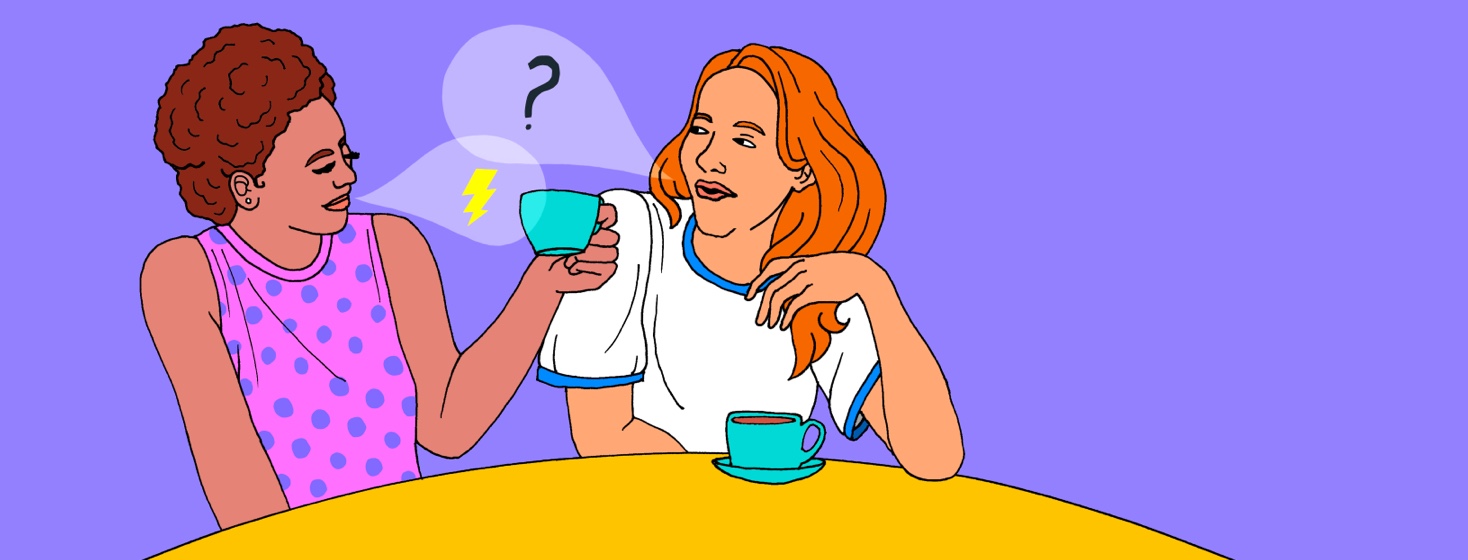"But You Don't Look Sick?" And Other Questions I Get About My Epilepsy
When I first began to go to a specific bar in Queens, New York, I did not drink alcohol because it is dangerous with AED medications and should be avoided. But I was enjoying myself socially with old grammar school friends and new acquaintances I was making.
And the questions begin...
I met many people, some only once. And if my voice changed because of the vagus nerve stimulator, I would ask for a cup or 2 of water. "Why did that happen?" was a question many people asked. For most of them, I told the truth responding, "It is my vagus nerve stimulator."
Usually, they would then ask what a vagus nerve stimulator is. "It is to control seizures and stimulate the vagus nerve," I'd say. "Where or what is that?" is usually the next question. I then explain it is an implant in the chest in the same location as a pacemaker, where the wire goes up from the chest. I show where it is in my neck. Some people are satisfied with that answer, others go further.
"Do you get seizures from flashing lights?"
If seeing me taking medication, a person may ask, "Why are you taking those pills? What are those pills for? Is that medication?" Usually, I say it's medication. To other people, I'll say, "It's for epilepsy." It depends on how open I want to be with the person asking.
The first responses I get from most people are, "You fall right? Flashing lights cause seizures right?" But when I tell them,"No. I have complex partial seizures," they look at me funny, because few people knew what that means. "What's a complex partial?" they may ask.
"But you don't look sick?"
So I'll explain complex partial seizures scientifically, and I'll usually receive more questions. Such as, "How do people get epilepsy? What exactly is a seizure? How often do you have seizures? What medication do you take? Does it really cause brain damage? That's why you drink non-alcoholic beer? Did you have surgery?" When people are sincere, I will explain more.
It always surprises me when people would say, "You have epilepsy? I would've never guessed that? You don't look sick! You don't look like you have anything wrong with you! How could that be?" I tell them, "An illness is not always visible."
Being a small bar with the usual people, eventually everyone knew about my epilepsy and accepted me. I've been going there 14 years and only had 4 seizures there. The first time one happened, the girls from my school alerted the bartender. One of them gave the bartenders my mother's number, which I'd given them in case of an emergency.
Epilepsy isn't always visible
Attending graduate school, I told 2 people, "I have a vagus nerve stimulator for epilepsy," as I coughed. One was surprised. "Really, you have epilepsy?" The other was speechless and by the end of the term told me, "Alyssa, I never imagined you have epilepsy with what you look like and how well you succeed," as she looked me in the face with her arms on my shoulders.
The professors received notification from the disability center. I also explained to them what my complex partials are like and about the VNS. "Thank you for telling me," was the response.
Most questions about epilepsy are well-intended
Sometimes, people may respond in a way that feels uncomfortable. But usually, they don't mean to hurt us. What may be common sense to us, others may just have no knowledge about. I find that most people know little about epilepsy and have preconceived notions and only think there are grand mal seizures.
Most people, when told about it, accept it. Some don't, but that's okay, too. When people ask me, sincerely, I tell them the truth and I find things work best that way.

Join the conversation